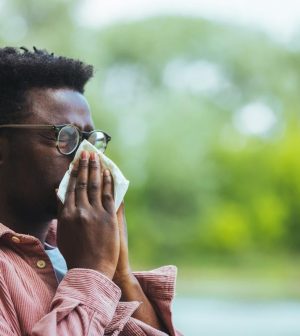- Could Your Grocery Store Meat Be Causing Recurring UTIs?
- Are You Making This Expensive Thermostat Error This Winter?
- Recognizing the Signs of Hypothyroidism
- 10 Strategies to Overcome Insomnia
- Could Artificial Sweeteners Be Aging the Brain Faster?
- Techniques for Soothing Your Nervous System
- Does the Water in Your House Smell Funny? Here’s Why
- Can a Daily Dose of Apple Cider Vinegar Actually Aid Weight Loss?
- 6 Health Beverages That Can Actually Spike Your Blood Sugar
- Treatment Options for Social Anxiety Disorder
Allergies Have You Stuffed Up? Nose Fungi May Be to Blame

There’s fungus among us, and it might be making allergies and asthma worse.
People with allergy sniffles and asthma have different fungal colonies in their noses than folks who don’t suffer respiratory allergies, researchers report Dec. 16 in the journal Frontiers in Microbiology.
“We showed that allergic rhinitis samples displayed a significantly higher fungal diversity and a different fungal community structure compared to those of healthy controls,” said researcher Dr. Luís Delgado with the University of Porto in Portugal.
For the study, researchers took nasal swabs from 214 children and young adults being treated at an immunology and asthma clinic in Porto.
Researchers sequenced the fungal DNA they found, and compared it to samples taken from 125 healthy people.
They detected common fungi that are known to promote allergies or disease in humans.
“This suggests that the nasal cavity is a major reservoir for fungi that could be involved in allergic rhinitis and asthma,” Delgado said in a journal news release.
What’s more, patients with respiratory diseases had more diverse and richer fungal colonies in their nose, particularly those with allergies and asthma combined.
This could indicate that the fungi are affecting the immune environment in the nose.
“However, we could not control all patient-specific variables, such as disease severity and related treatment levels, and patients were sampled at a single time,” Delgado cautioned.
Follow-up studies will focus on those variables, he said.
Future research could also see if lowering fungal levels in the nose might improve allergy or asthma symptoms.
More information
The American Lung Association has more about asthma.
SOURCE: Frontiers, news release, Dec. 17, 2024
Source: HealthDay
Copyright © 2026 HealthDay. All rights reserved.










